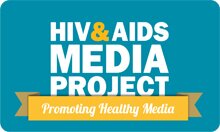Jacob Zuma
Jacob Zuma.
Photo: Tara Turkington
President Jacob Zuma is generally seen as a friend of the struggle against HIV/AIDS, though he remains a somewhat controversial figure. In May 2005, in an address to the National Assembly, Zuma said that nutrition "is not a substitute for appropriate treatment", in a subtle rebuke of then Health Minister Manto Tshabala-Msimang's position. In June 2005, Zuma was relieved of his duties as the deputy president of South Africa after being charged with corruption, though charges were subsequently dropped. He also relinquished his chairmanship of the
South African National Aids Council. In December 2005, rape charges were laid against him by a 31-year-old HIV-positive woman (read more about the case). Zuma was subsequently found not guilty of the rape charges. Zuma’s past with regard to HIV/AIDS has been controversial as he knowingly had unprotected sex with an HIV-positive woman. However, in his role as president of South Africa he has made a promise to halve the amount of new infections in two years, according to an article published in the
Daily News. Zuma publicly stated - and went on to fulfill - his desire to break free from Thabo Mbeki’s AIDS legacy and extend South Africans’ access to ARVs and take prevention campaigns further than they had ever been. In particular, he concentrated on the prevention of mother-to-child transmission of HIV.
Also see:
-
Jacob Zuma's African National Congress (ANC) profile
Quotable Quotes
"Let me emphasise that our position is that nutrition is not a substitute for appropriate treatment, but prolongs good health and serves as a solid foundation that determines the success of other medical interventions."— Jacob Zuma, talking to the National Assembly on May 25, 2005.







